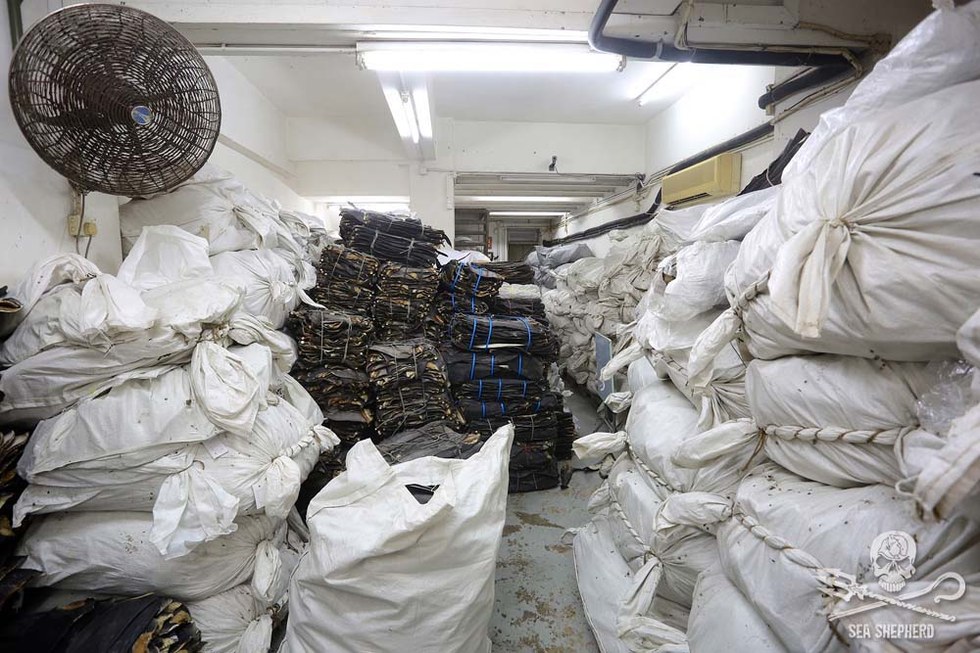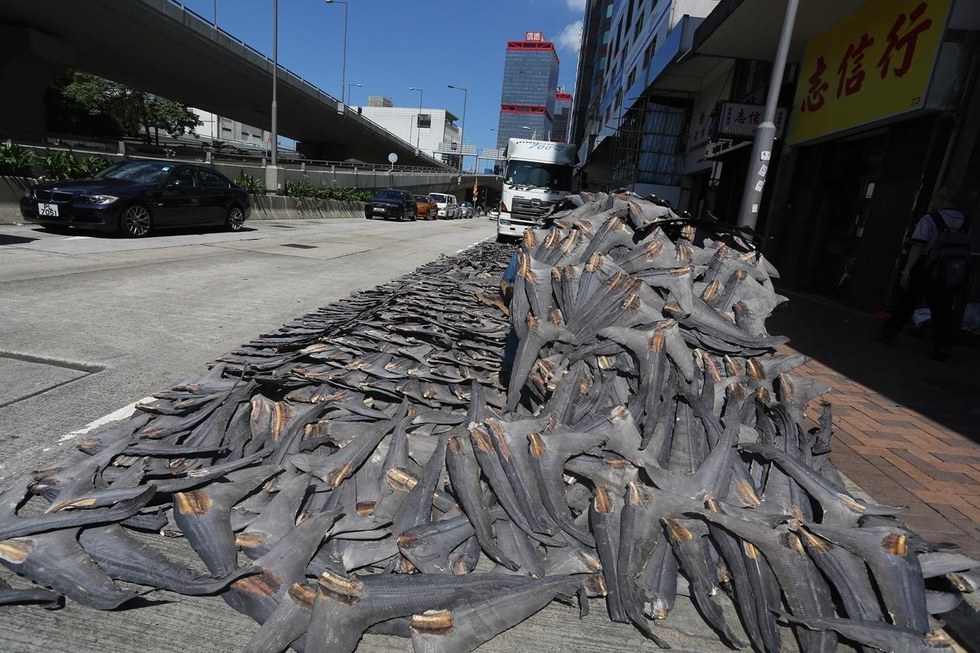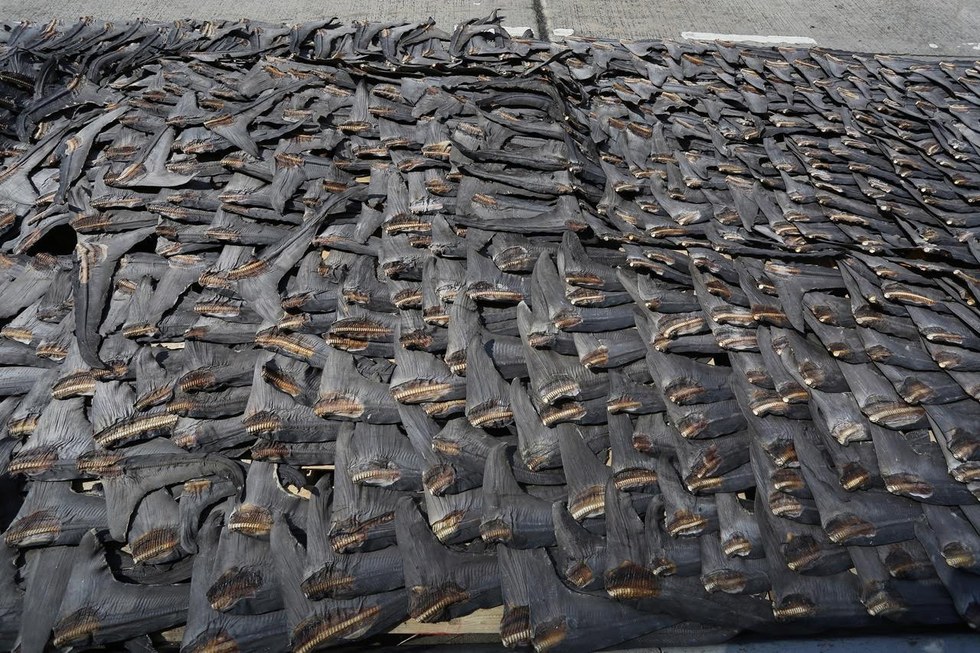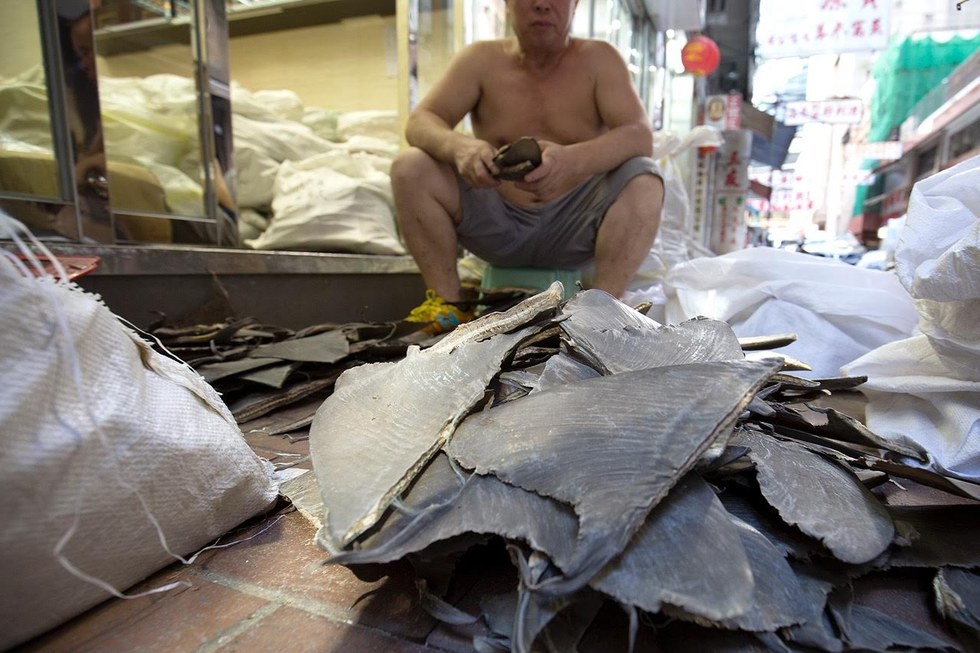As Gary Stokes unloaded large white shipping bags in a container from Hong Kong, something seemed off. He didn't even need to open the bags to figure out what was inside. All he had to do was use his nose.
"It's so strong, the smell," Stokes, the Southeast Asia director at Sea Shepherd Conservation Society, said. "It's like cat pee on steroids."
Inside the shipping container? Hundreds of thousands of shark fins.
Stokes says it wasn't the fins that startled him, as Hong Kong is the mecca for shark fins. It's the fact that this company, Maersk, had previously banned carrying shark fins and then turned around and transported this shipment.
"When we found the big Maersk containers, the alarm bell went off because Maersk was the first to ban shark fins in 2010," Stokes said. "So when you see a big container with Maersk on the side and they're unloading shark fin, you think, 'Hello, there's something going on here.'"
Shark fins are a huge commodity in Asia, more specifically in China. One bowl of shark fin soup can cost over $100. Because the dish is so popular, it's estimated that 73 million sharks are killed for their fins each year.
"It's a gut-wrenching feeling," Stokes said. "As a diver, the chance of seeing a shark on a dive is just so slim "” it's amazing if you get to see one. And then here, I'm seeing hundreds and thousands of dead sharks right in front of me, and I think, 'How is it possible that there are any left in the ocean?'"
Shark fins have always been a controversial subject, mainly because of how they are harvested. More often than not, sharks are caught, their fins are cut off, and then their still-living bodies are dumped back into the ocean.
"Fins don't grow back, so once these animals have been mutilated, they're no longer able to swim, and if they're not moving, their gills can't function and extract oxygen," said Joanna Grossman, a former federal policy advisor for the Animal Welfare Institute.
But why is it such a big deal that a company who banned shipping these fins are now, indeed, shipping them? Easy. These companies don't label their shipments as "shark fins," so there's no way to track what type of sharks were harmed. It also means customs doesn't do the same type of check on the storage container. Stokes speculates that these fins come from highly protected species like whitetip sharks and scalloped hammerheads.
"When you see a container full of shark fins that hasn't even been checked by customs, you wonder, 'How many endangered species are mixed in with those legally caught sharks?'" Stokes said.
Shark finning is a huge issue, and if you would like to help you can sign this petition.





